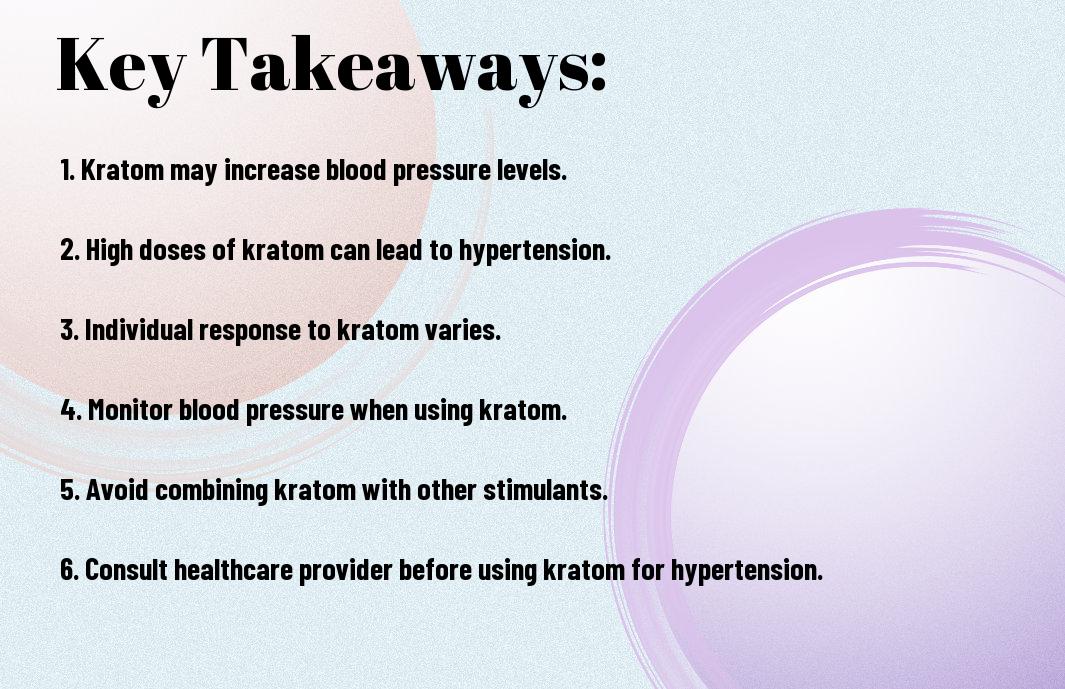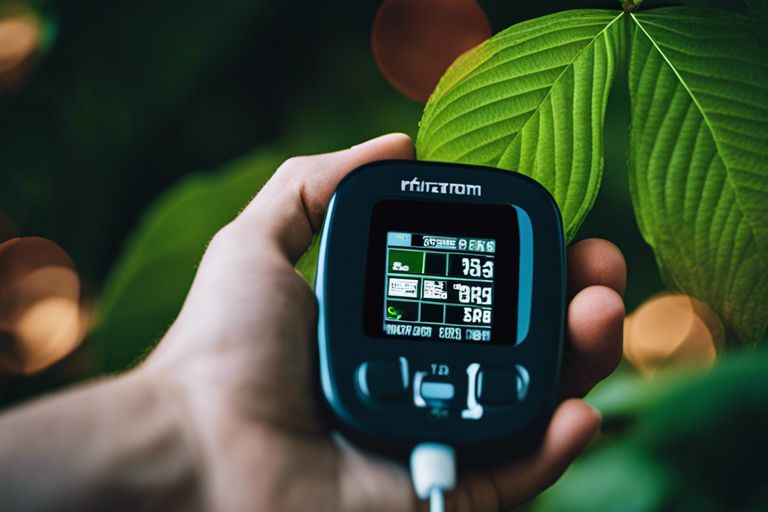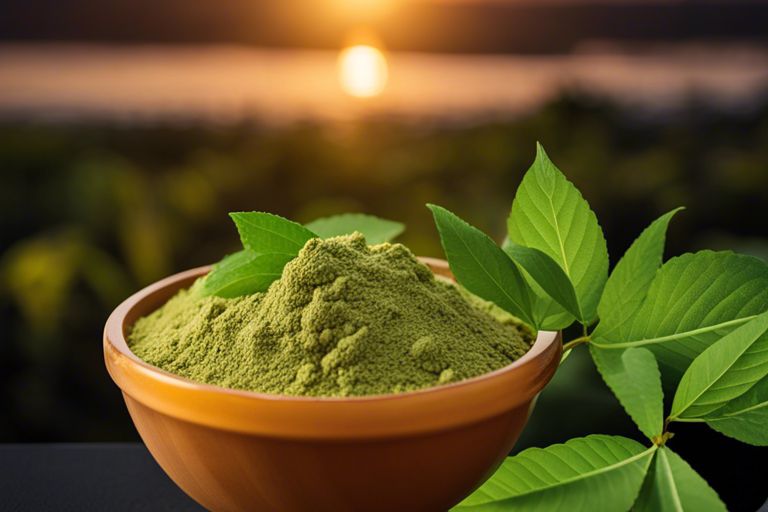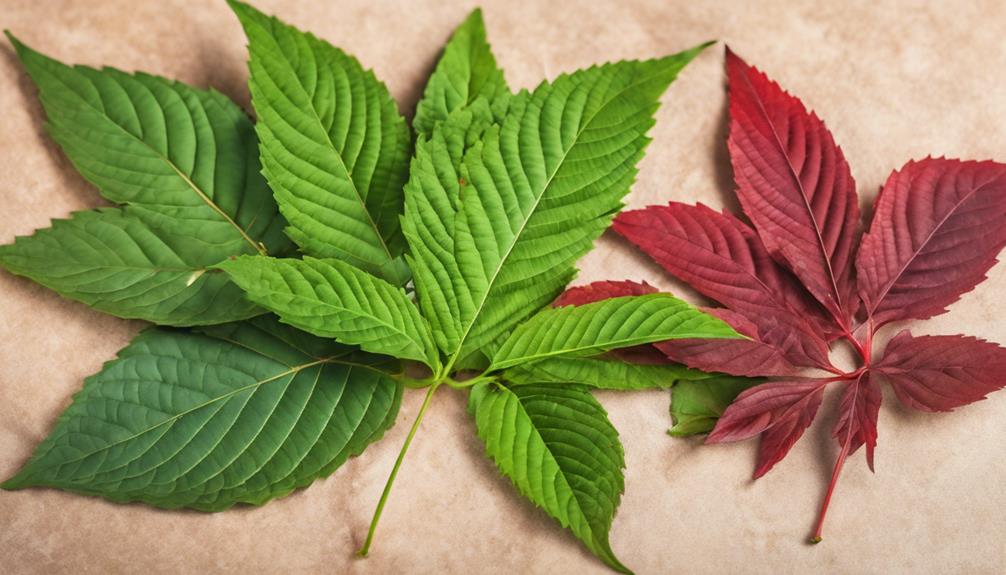There’s a lot of debate surrounding the effects of kratom on your blood pressure. In this informative blog post, we will explore the question: can kratom cause high blood pressure? You’ll find out about the potential risks, how kratom may impact your blood pressure, and what precautions you can take if you decide to use this popular herb. So, if you’re curious about the relationship between kratom and high blood pressure, keep reading to learn more.

What is Kratom?
To understand whether kratom can cause high blood pressure, it’s important to first know what kratom is. Kratom, scientifically known as Mitragyna speciosa, is a tropical evergreen tree native to Southeast Asia. It belongs to the coffee family and has been used for centuries for its stimulant and pain-relieving properties.
Origins and History
An ancient plant with roots in Southeast Asia, kratom has been traditionally consumed by indigenous populations in countries like Thailand, Malaysia, and Indonesia. It was often brewed into teas or chewed for its energizing effects or to alleviate discomfort.
Chemical Composition
When exploring the chemical composition of kratom, you’ll find that it contains two main compounds: mitragynine and 7-hydroxymitragynine. These alkaloids interact with the body’s opioid receptors, producing effects similar to opioids but with a milder impact.

The Effects of Kratom on Blood Pressure
Stimulating Effects
Little is known about the direct effects of kratom on blood pressure. However, some studies suggest that kratom may have stimulating effects on the body, which could potentially lead to an increase in blood pressure. According to a study published in Heliyon, there is an association between kratom (Mitragyna speciosa) use and certain cardiovascular risks.
Sedating Effects
Blood pressure may also be affected by kratom’s sedating effects. When kratom acts as a sedative, it can help you relax and unwind. This relaxation may lead to a decrease in heart rate and potentially lower your blood pressure. However, it is vital to be mindful of the dosage and strain of kratom you are using, as different varieties can have varying effects on your body.
A study has shown that kratom can have both stimulating and sedating effects, depending on the dosage and individual differences. It’s crucial to pay attention to how your body responds to kratom to understand the impact it may have on your blood pressure. As with any substance, moderation and awareness of your body’s reactions are key to safely incorporating kratom into your wellness routine.
Cardiovascular Implications
Effects on blood pressure and heart rate are crucial considerations when exploring the use of kratom. The stimulating and sedating effects of kratom can impact your cardiovascular system. It’s vital to monitor your blood pressure and heart rate when using kratom, especially if you have pre-existing cardiovascular conditions. Consulting with a healthcare provider before incorporating kratom into your routine can help you assess any potential risks and benefits specific to your health.
To ensure that you are using kratom safely, it is recommended to start with a low dose and gradually increase as needed. Monitoring your blood pressure and overall well-being while using kratom can help you determine the right dosage and strain that works best for you. Recall, everyone’s body reacts differently, so listen to your body and adjust your kratom use accordingly.
The Link Between Kratom and High Blood Pressure
Once again, the discussion around kratom and its potential impact on high blood pressure leads us to explore the intricate relationship between this botanical substance and our cardiovascular health. Understanding how kratom interacts with our bodies can provide valuable insights into its effects on blood pressure regulation.
Vasopressin and Blood Pressure Regulation
Blood pressure is regulated by various mechanisms in the body, including the hormone vasopressin. Vasopressin plays a crucial role in maintaining blood pressure by controlling the amount of water reabsorbed by the kidneys, and it also constricts blood vessels, raising blood pressure when needed.
Kratom’s Impact on Vasopressin
Kratom’s potential impact on vasopressin levels is an area of interest in understanding how it may influence blood pressure. Research suggests that kratom may affect vasopressin release in the body, which could potentially lead to alterations in blood pressure levels.
Understanding the specific mechanisms by which kratom affects vasopressin and, in turn, blood pressure regulation can provide valuable insights into the potential risks associated with kratom use, especially for individuals with preexisting hypertension or cardiovascular conditions.
Clinical Evidence and Research
Between kratom and high blood pressure, clinical evidence and research are crucial in elucidating the potential implications of kratom use on cardiovascular health. Studies exploring the effects of kratom on blood pressure regulation can offer valuable information on the safety and risks associated with its consumption.
Another aspect to consider is the need for more comprehensive research to further understand the long-term effects of kratom on cardiovascular health, including its impact on blood pressure regulation. By delving deeper into the scientific evidence available, we can gain a clearer understanding of the potential risks and benefits of using kratom.
Factors That Contribute to Kratom-Induced High Blood Pressure
Your dosage and frequency of kratom use can significantly impact your blood pressure levels. Higher doses of kratom consumed more frequently are more likely to cause an increase in blood pressure. This is because kratom contains compounds that can stimulate the cardiovascular system, leading to elevated blood pressure. If you are taking large doses of kratom multiple times a day, it could put a strain on your heart and result in high blood pressure over time.
This is why it is crucial to monitor your kratom intake and be mindful of how much and how often you are using it. Keeping track of your dosage and frequency can help you better understand the impact it may have on your blood pressure.
Individual Tolerance and Sensitivity
Factors such as your individual tolerance and sensitivity to kratom can also play a role in whether or not it will cause high blood pressure. Some people may be more sensitive to the effects of kratom, including its impact on blood pressure. If you are someone who is particularly sensitive to stimulants, including those found in kratom, you may be more likely to experience an increase in blood pressure when using the herb.
To determine your sensitivity to kratom, it is imperative to start with a low dose and monitor how your body reacts. If you notice any signs of increased blood pressure or other adverse effects, it may be a signal that kratom is not suitable for you or that you need to adjust your dosage accordingly.
Interactions with Other Substances
On top of dosage and individual sensitivity, interactions with other substances can also contribute to kratom-induced high blood pressure. Mixing kratom with other stimulants or substances that affect the cardiovascular system can increase the risk of elevated blood pressure. Substances like caffeine, alcohol, or certain medications may interact with kratom and potentiate its effects on blood pressure.
That’s why it’s imperative to be aware of what you are consuming alongside kratom and how it may interact with the herb. If you are already dealing with high blood pressure or taking medications for it, consult with a healthcare provider before using kratom to avoid any potential interactions that could worsen your condition.
Managing Blood Pressure While Using Kratom
Monitoring Blood Pressure
Blood pressure monitoring is crucial when using kratom. Make sure to check your blood pressure regularly, especially if you are prone to high blood pressure. Keep a log of your readings to track any changes and consult with your healthcare provider if you notice any significant fluctuations.
Lifestyle Changes and Diet
Using kratom can potentially impact your blood pressure, so it’s vital to maintain a healthy lifestyle and diet. Incorporate regular exercise, such as brisk walking or yoga, into your routine to help manage stress levels and keep your blood pressure in check.
Additionally, focus on eating a balanced diet rich in fruits, vegetables, whole grains, and lean proteins. Avoid foods high in sodium, saturated fats, and added sugars, as these can contribute to high blood pressure.
Medication and Supplements
Medication and supplements can play a role in managing blood pressure while using kratom. If you are on any medication for hypertension, ensure that there are no interactions with kratom. Consult with your healthcare provider to adjust your medication regimen if needed to maintain healthy blood pressure levels.
Some supplements, such as magnesium and potassium, may help support cardiovascular health and regulate blood pressure. However, always consult with a healthcare professional before adding any supplements to your routine to avoid any adverse effects.
Alternatives to Kratom for Pain Relief and Energy
Natural Alternatives
Alternatives to Kratom for pain relief and energy can include natural options such as turmeric, ginger, and cayenne pepper. These natural remedies have been used for centuries to help with pain management and provide a natural energy boost without the potential risks associated with kratom.
Prescription Medications
For more severe pain, prescription medications like opioids or NSAIDs may be prescribed. However, it’s important to use these medications under the guidance of a healthcare provider due to the potential for dependence and side effects. Always follow your doctor’s instructions carefully when using prescription medications for pain relief.
This subsection provides more information on prescription medications that can be used as alternatives to kratom for pain relief and energy. It is imperative to consult with a healthcare professional before starting any new prescription medication regimen.
Lifestyle Changes for Pain Management
Medications aren’t the only option for managing pain and increasing energy levels. Lifestyle changes like regular exercise, a healthy diet, adequate sleep, and stress management techniques can all play a vital role in enhancing your overall well-being. These changes can help reduce pain and fatigue, offering a more sustainable solution compared to relying on kratom or prescription medications.
Understanding the importance of lifestyle changes in pain management is crucial. By incorporating healthy habits into your daily routine, you can reduce your reliance on substances like kratom for pain relief and energy, leading to a more balanced and sustainable approach to your health.
Final Words
Ultimately, it is important to be aware of the potential effects of kratom on your blood pressure. While research is still ongoing, it is crucial to monitor your blood pressure closely if you are a regular kratom user, especially if you already have high blood pressure or a history of heart conditions. It is always advisable to consult with a healthcare professional before integrating any new substance into your routine to ensure that it is safe for you.
Q: Can kratom cause high blood pressure?
A: While some individuals have reported experiencing high blood pressure as a side effect of using kratom, more research is needed to definitively establish a link between kratom and high blood pressure.
Q: How does kratom affect blood pressure?
A: Kratom is believed to potentially impact blood pressure by acting as a stimulant on the body’s cardiovascular system, which could potentially lead to increases in blood pressure for some users.
Q: Are there any risk factors for developing high blood pressure from kratom use?
A: Individuals who have preexisting hypertension or cardiovascular issues may be at a higher risk of experiencing increases in blood pressure when using kratom.
Q: What are the symptoms of high blood pressure?
A: Symptoms of high blood pressure can include headaches, chest pain, difficulty breathing, vision problems, and in severe cases, can lead to heart attacks or strokes.
Q: How can I monitor my blood pressure while using kratom?
A: It is important to regularly monitor your blood pressure while using kratom, especially if you have a history of hypertension or other cardiovascular issues. You can use a home blood pressure monitor to track your levels.
Q: What should I do if I experience high blood pressure while using kratom?
A: If you experience high blood pressure or any concerning symptoms while using kratom, it is important to stop using the substance and seek medical attention from a healthcare professional.
Q: Can I still use kratom if I have high blood pressure?
A: It is recommended to consult with a healthcare provider before using kratom if you have high blood pressure or any cardiovascular concerns, as they can provide personalized advice based on your medical history.










